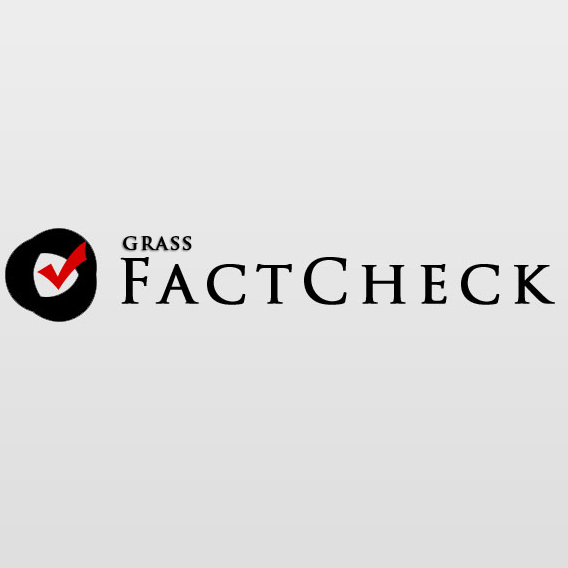Irakli Jankarashvili, a blogger who has disseminated pro-Russian and anti-Western messages numerous times in the past, made a manipulative publication on Facebook about the conditions that Georgia has to meet in order to be granted EU membership candidate status.

According to Mr Jankarashvili’s claim, the conditions that Georgia has to meet in order to become a candidate for EU membership are as follows:
1.Serve us
2.Refuse your faith
3.Refuse your family
4.Go to war for us
Irakli Jankarashvili also added: “And in exchange for all of these, we are going to receive a pledge on paper that someday we will join the EU.”
These four conditions that are outlined in Irakli Jankarashvili’s publication have nothing to do with the 12 priorities that the European Commission drafted for Georgia. The pro-Russian blogger, in his social media publication, simply offers a summary of widespread narratives cultivated for a long time by the anti-Western propaganda disinformation. According to these pro-Kremlin messages, the EU fights against Orthodox Christianity, traditional values and family, and seeks to drag Georgia into the war and open a second front against Russia.
In fact, the EU’s (the European Commission and the European Council) 12recommendations(as well as in any other formats and working document between Georgia and the EU) do not say anything similar to the aforementioned four conditions.
On 3 March 2023, Georgia submitted its EU membership application. On 7 March 2022, the Council of the European Union asked the European Commission to send its own opinion of the proposal. Leaders of and governments of the European Unionsupportedthis decision at an informal meeting at Versailles.
On 17 June 2022, the European Commission published its conclusion and recommendations. The European Commission addressed the Council of the European Union with a recommendation to grant a European perspective to Georgia and also recommended granting candidate status once the 12 priorities are addressed.
The European Commission’s 12 recommendations for Georgia are as follows:
1. Address the issue of political polarisation through ensuring cooperation across political parties in the spirit of the 19 April agreement.
2. Guarantee the full functioning of all state institutions, strengthening their independent and effective accountability as well as their democratic oversight functions; further improve the electoral framework, addressing all shortcomings identified by the OSCE/ODIHR and the Council of Europe/Venice Commission in these processes.
3. Adopt and implement a transparent and effective judicial reform strategy and action plan post-2021 based on a broad, inclusive and cross-party consultation process; ensure a judiciary that is fully and truly independent, accountable and impartial along the entire judicial institutional chain, also to safeguard the separation of powers; notably, ensure the proper functioning and integrity of all judicial and prosecutorial institutions, in particular the Supreme Court and address any shortcomings identified including the nomination of judges at all levels and of the Prosecutor-General; undertake a thorough reform of the High Council of Justice and appoint the High Council’s remaining members. All of these measures need to be fully in line with European standards and the recommendations of the Venice Commission.
4. Strengthen the independence of the Anti-Corruption Agency bringing together all key anticorruption functions, in particular to rigorously address high-level corruption cases; equip the new Special Investigative Service and Personal Data Protection Service with resources commensurate to their mandates and ensure their institutional independence.
5. Implement the commitment to “de-oligarchisation” by eliminating the excessive influence of vested interests in economic, political and public life.
6. Strengthen the fight against organised crime based on detailed threat assessments, notably by ensuring rigorous investigations, prosecutions and a credible track record of prosecutions and convictions; guarantee accountability and oversight of law enforcement agencies.
7. Undertake stronger efforts to guarantee a free, professional, pluralistic and independent media environment, notably by ensuring that criminal procedures brought against media owners fulfil the highest legal standards and by launching impartial, effective and timely investigations in cases of threats against safety of journalists and other media professionals.
8. Move swiftly to strengthen the protection of human rights of vulnerable groups, including by bringing perpetrators and instigators of violence to justice more effectively.
9. Notably consolidate efforts to enhance gender equality and fight violence against women.
10. Ensure the involvement of civil society in decision-making processes at all levels.
11. Adopt legislation so that Georgian courts proactively take into account European Court of Human Rights judgments in their deliberations.
12. Ensure that an independent person is given preference in the process of nominating a new Public Defender (Ombudsperson) and that this process is conducted in a transparent manner; ensure the Office’s effective institutional independence.
Therefore, Irakli Jankarashvili’s publication and the four conditions reflected in that publication are the author’s disinformation and are another attempt to disseminate the anti-Western propaganda that has been cultivated by the Kremlin in Georgia for many years.
--------------------------------------------------------------------------------------------------------------------------
This article was produced as part of Facebook’s Fact-checking Programme. Given the rating, Facebook may impose different restrictions – click here for full information. For information on issuing a correction or to dispute a rating, please see here.







